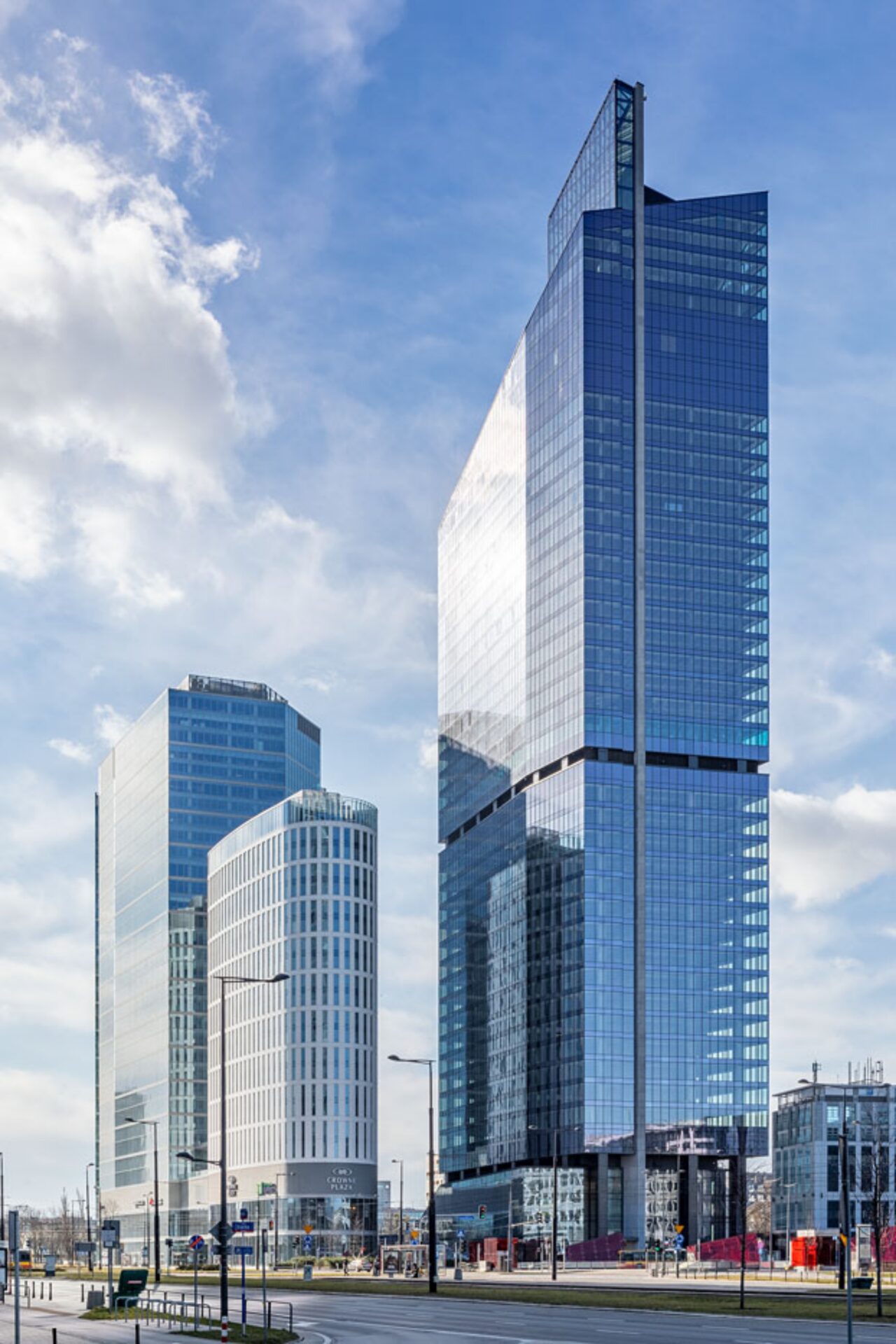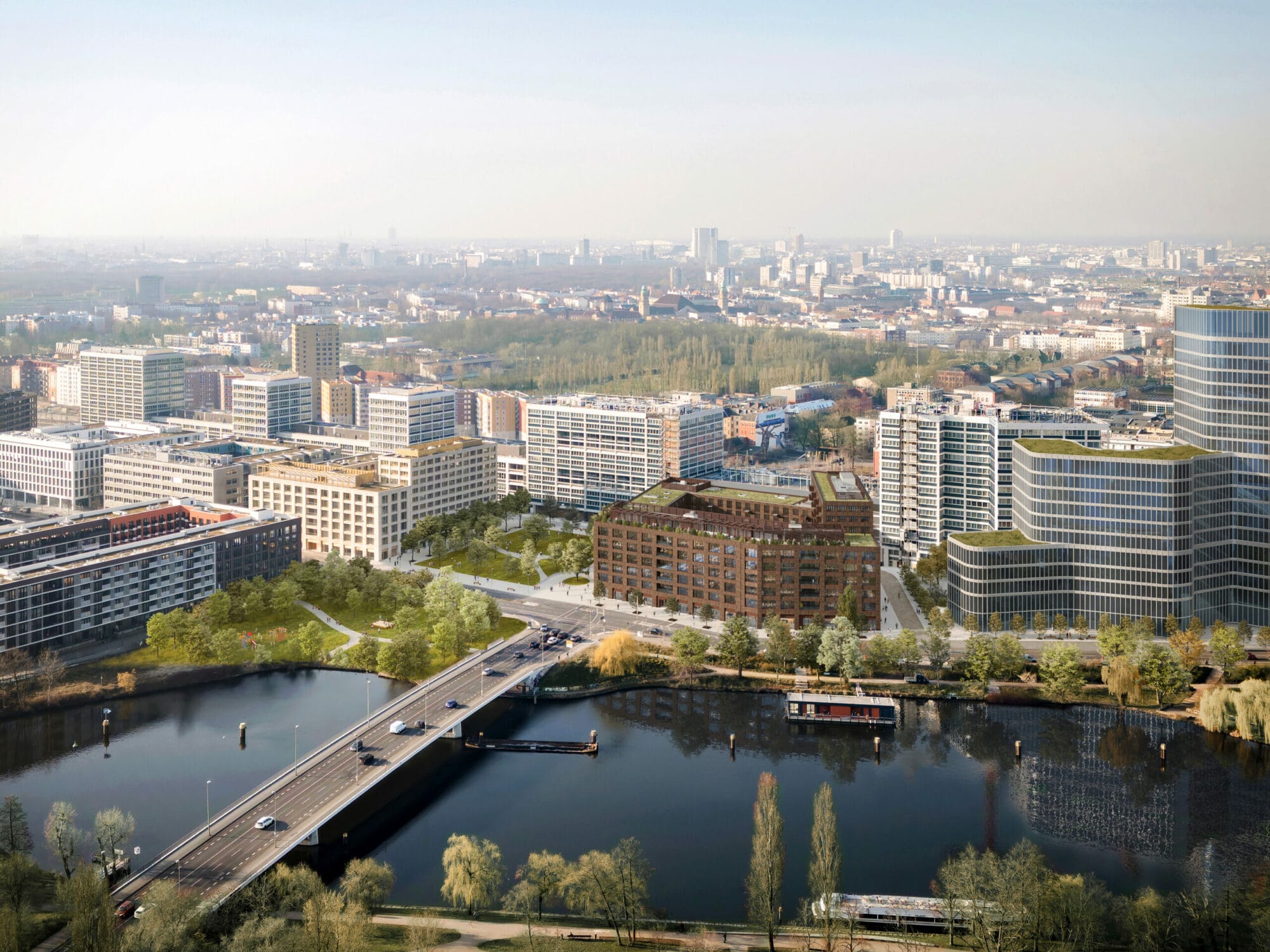Arkadiusz Rudzki, Executive Vice President of Leasing & Sales at Skanska commercial development business unit in CEE, believes that the pandemic has created a reality that will strengthen the trends which have existed in the industry for years. In 2021, however, developers will prepare a new offer for their customers. It will aim at responding to the hybrid working model that has emerged during the coronavirus pandemic.
Safety as the key trend in 2021
“Safety has always been the keyword for us. We either build safely or not at all. However, this also applies to the projects we develop, offering safe working environments for our tenants. Both in 2020 and 2021, we have been as focused as possible on ensuring that our office buildings meet the stricter requirements of the sanitation regime and that employees can return to office spaces in this new reality,” says Arkadiusz Rudzki. “For example, our ‘Connected by Skanska’ app allows to access a building using virtual cards, guests use electronic registration, whereas drivers have a smart parking lot that they can enter thanks to the automatic recognition of their license plates. These are solutions that increase safety in the difficult time of the pandemic.”
Skanska is the first developer in Central and Eastern Europe to be awarded the WELL Health-Safety Rating in multiple project applications for eight projects (including four in Poland). The rating is awarded to the office spaces with the highest safety parameters that reduce disease transmission risk related to the ongoing pandemic. Distinctions like these are proof to employees that they can feel comfortable at work.
Office work: a new form of benefit
After the initial exhilaration of working at home, successive months of the pandemic have shown that offices are still necessary (or even essential) for teams and entire companies to operate. The lack of face-to-face interactions with colleagues negatively affects both employees and employers. Offices have significant social, cultural, and formal roles to play.
“I would like to emphasize that there has been a shift in the approach to office spaces that the pandemic has only considerably accelerated. Companies will increasingly move away from the ‘you must come to the office’ approach in favour of ‘I would like you to want to come to the office,” Arkadiusz Rudzki explains. “This change will strongly affect office spaces in the future. You will need to provide employees with more space and proper sanitation measures and convince them that their office is safe. Above all, however, offices will have to offer something more than what the employee has at home: in a nutshell, offices should be better, nicer, more comfortable and more interesting than home. Solutions that will help employees save time (e.g., concierge services) are sure to gain in importance. I think that the way we use offices will become increasingly similar to what we need hotels for: we will spend there the time necessary for teamwork, building relationships with other employees and using the infrastructure of office buildings, which will satisfy our needs related to performing the tasks that we cannot do while working from home.”
Flexible working models result in the growing importance of core & flex: hybrid workplace strategies
Reasons for the occasional inclusion of flex spaces in the pool of the workspaces available for employees before the pandemic (e.g., the need to provide temporary project or transitional space for the duration of renovations) are now slowly becoming part of strategic planning. The unpredictability and suddenness of changes have been compounded by the experience related to the coronavirus. This, in turn, is bound to change reasons for the demand for combined office solutions. Flex, combined with a traditional HQ, will become a permanent component of the corporate workplace planning, if only as an excellent and secure buffer for unpredictable changes in employment, e.g., downsizing or expansion. “Additionally, after last year, we know that the corporate model of work organization should not be based only on traditional HQs and employees’ homes. This is not a perfect model: after all, not every employee has the right conditions to work at home. Flex spaces will be the perfect complement as well as an alternative between an office with limited access and home,” adds Arkadiusz Rudzki. We should notice an increased interest in this type of spaces quite soon, together with developers’ decisions to supplement the office formats with flex spaces. “Skanska was the first to notice this need and, nearly four years ago, it established cooperation with Business Link, focusing on hybrid office offerings (the so-called core & flex). Within a single group of developers, we can fully respond to the current needs of corporate tenants who wish to combine tradition with flexibility,” emphasizes Rudzki.
Sustainable and responsible business operations
For the young generation, the key role is played by the values professed and represented by their employers. This will become increasingly important, especially in the context of the ongoing climate crisis. Sustainable and responsible corporate operations will become the only option in the future. “At Skanska, we make sure that our buildings are timeless, modern, open, and vibrant. We are committed to making sure employees want to and enjoy working there. That is why we attach so much importance to WELL and LEED certifications: we would like our investments to be in harmony with nature and people. The worst thing that can happen to employees is the so-called “sick office syndrome” where the office’s design is so bad that people who stay there complain of headaches or discomfort. Considering the times we live in and the fact that working in offices ceases to be a default standard, taking care of the highest possible comfort of people in a building is not only the key but simply the necessary part of success,” concludes Arkadiusz Rudzki.







